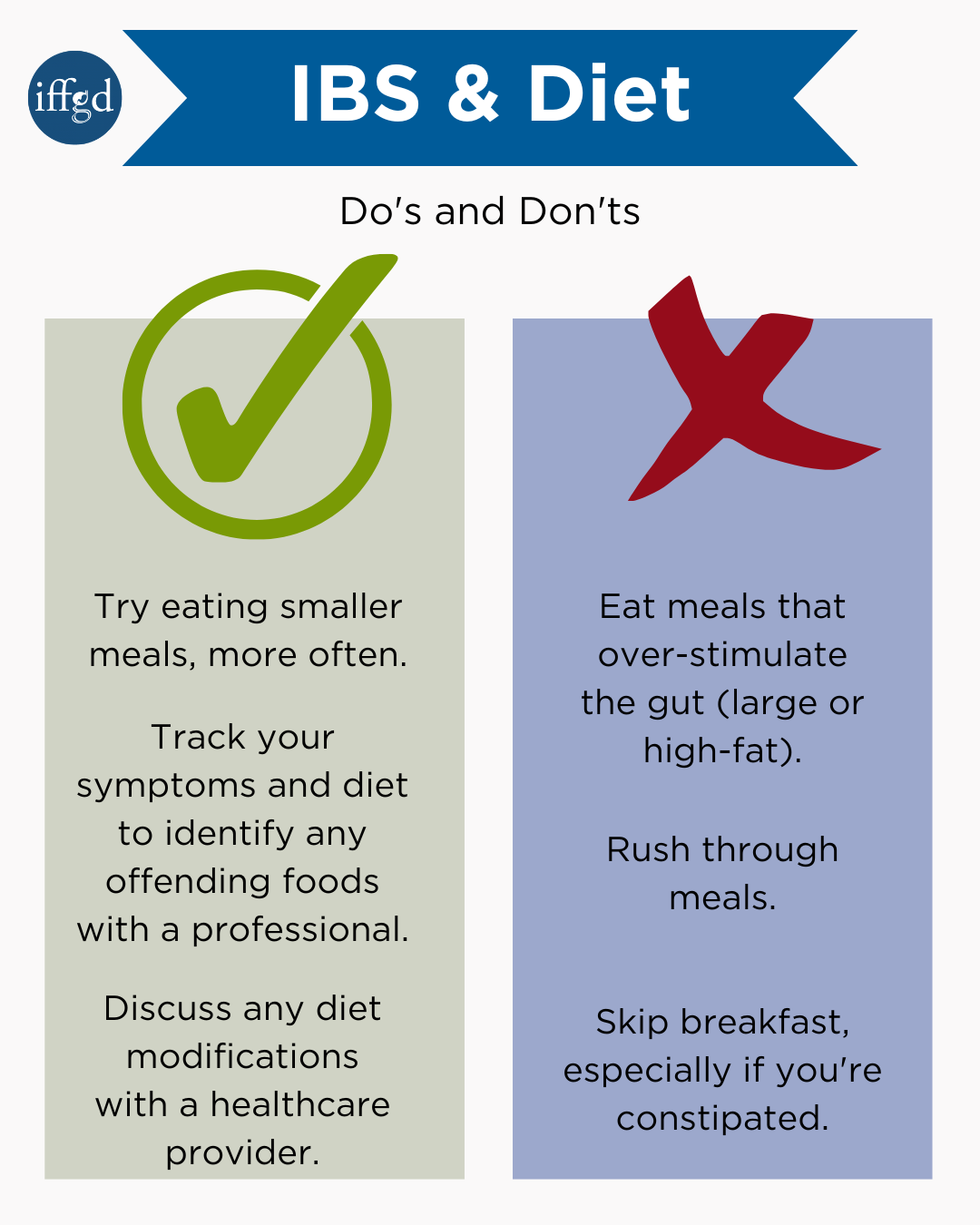The influence of diet is unique to each person. There is no generalized IBS Diet or dietary advice that will work for everyone.
A healthcare provider can take a brief dietary history and help identify dietary and/or other factors that may impact symptoms. Keeping a daily symptom diary for 2–3 weeks can help you learn more about how your body may be reacting to certain things in your life, such as diet, exercise, stress, and sleep.
For those with irritable bowel syndrome (IBS) who benefit from simple dietary modifications, it makes sense to adjust the diet and reduce the intake of the offending food. It does not make sense to adopt unnecessarily limited diets. This can lead to reduced quality of life or even malnutrition.
Seeking IBS Diet Advice From a Healthcare Professional
IBS patients are at an increased risk of developing unhealthy eating patterns due to the frequent use of restrictive diets. Additionally, up to 90% of IBS patients will avoid certain foods to prevent or improve their GI symptoms. Although this can be a normal response, it can spiral out of control and lead to a long list of “bad” foods and a short list of “safe” foods. There is increasing awareness of severe, harmful food restrictions among adult GI patients, effecting approximately 15-20%.
This is why it is so important to discuss any dietary modifications with a healthcare provider (like a Registered GI Dietitian). They can assess individual circumstances affecting IBS, while helping make sure that nutritional needs are being met through a balanced diet, and healthy eating habits.
Learn More About Talking To Your Healthcare Provider
Tips for an IBS-Friendly Diet
Meals may seem to trigger symptoms. It may be the process of eating and not a certain food that sets off your symptoms. Eating stimulates the digestive tract, which can over-respond because of IBS.
- Try eating smaller meals, more often, spread throughout your day. Instead of 3 meals, try 5 or 6 regularly scheduled small meals.
- Slow down; don’t rush through meals.
- Avoid meals that over-stimulate everyone’s gut, like large meals or high-fat foods. If you are constipated, try to make sure you have breakfast, as this is the meal that is most likely to stimulate the colon and give you a bowel movement.
If you think a certain food is a problem, try cutting it out of your diet for about 12 weeks. (If you suspect more than one, cut out one at a time so you know which one causes you problems.) If there’s no change, go back to eating it.
The foods most likely to cause problems are:
- Insoluble (cereal) fiber
- Coffee/caffeine
- Chocolate
- Nuts
FODMAPs
Poorly absorbable, highly gas-forming carbohydrates are associated with increased IBS symptoms in some people. These foods are collectively called FODMAPs.
FODMAP is the acronym for a group of osmotically active, rapidly fermentable, short-chain carbohydrates. It stands for Fermentable Oligo- Di- and Monosaccharides and Polyols. Examples of FODMAPs are lactose, fructose, sorbitol, mannitol, fructooligosaccharides, and galactooligosaccharides. The concept originated with scientists at Australia’s Monash University. Learn more here.
Be sure to eat a healthy diet. If food is a major problem for you, talk to your healthcare providers or a registered dietitian to work out a meal plan that’s best for you.
Adapted from IFFGD Publication #120- IBS and Nutrition by Kim Harer MD, Clinical Lecturer, Internal Medicine, Division of Gastroenterology, University of Michigan, Ann Arbor, MI; Edited by: Shanti Eswaran MD, Associate Professor, Internal Medicine, Division of Gastroenterology, University of Michigan, Ann Arbor, MI










